When I was a boy, visiting my grandparents’ ranch in Southeastern Montana, my Grandpa Arbuckle, like most ranchers, used to love taking a drive around the place, checking on the cattle, and just generally taking a look at the ranch.

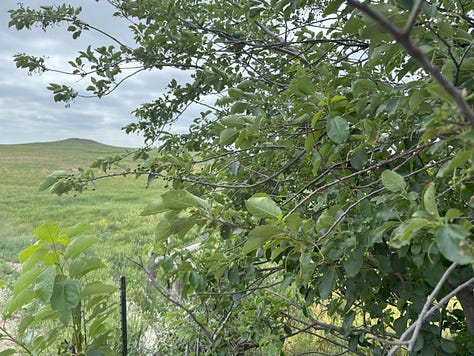
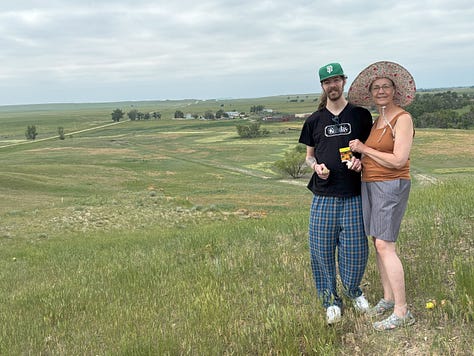
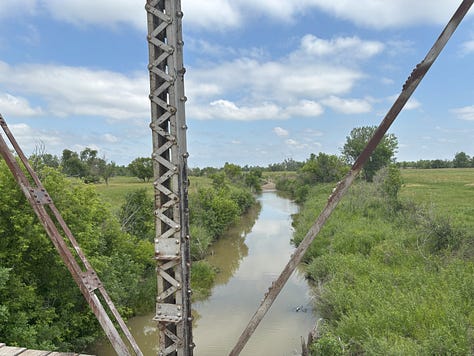
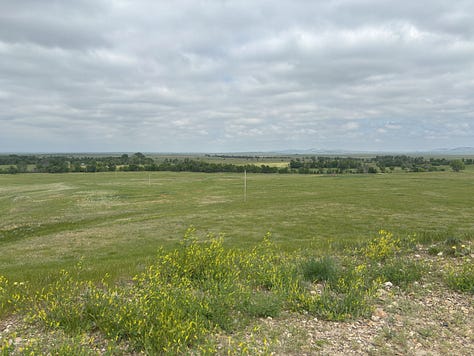
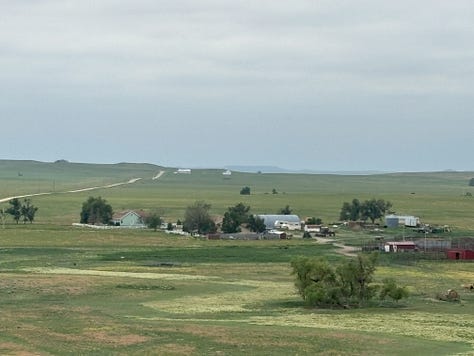
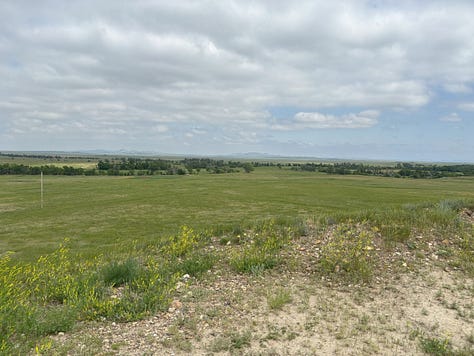
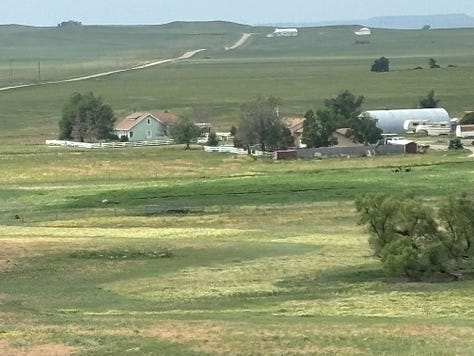
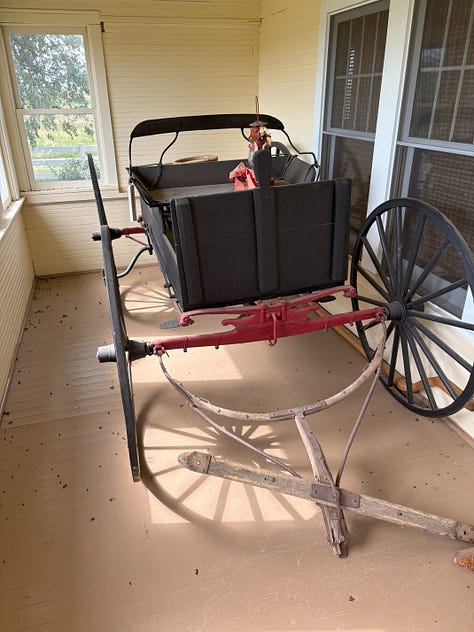
One of the most frightening, but also exhilarating, parts of these excursions was when Grandpa would suddenly just drive off the ‘road,’ directly out into the field, for no apparent reason. Sometimes the grass or the alfalfa, or the wheat would be nearly brushing the window, but that didn’t stop Grandpa from barreling through those fields, in pursuit of answers to some mysterious question. He never explained, of course, so we could only imagine what suddenly caught his attention.
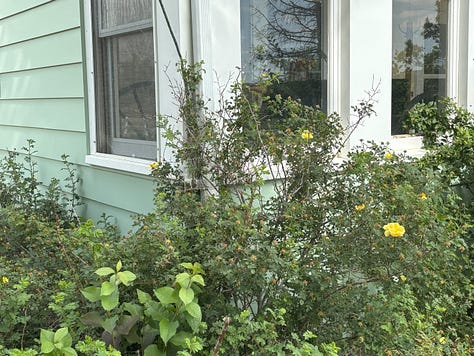
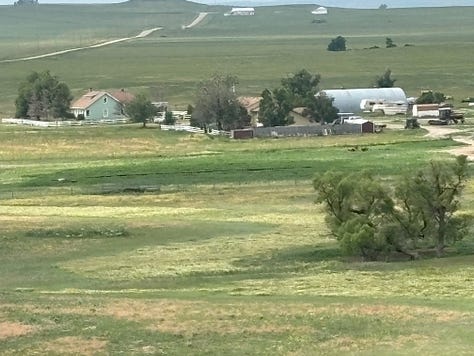
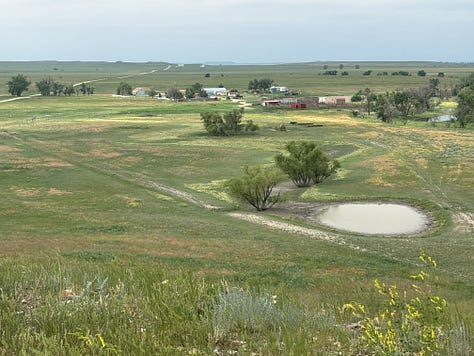
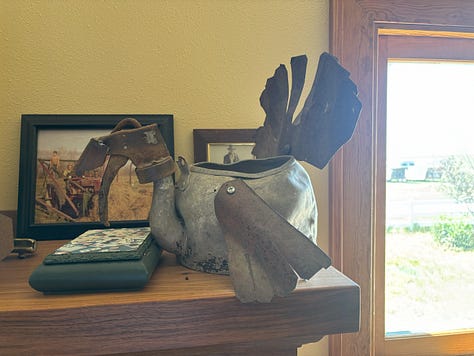

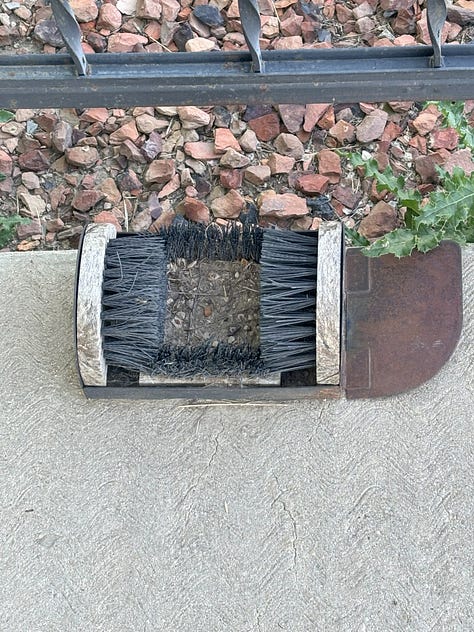
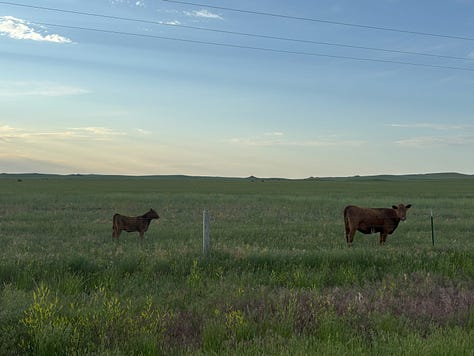
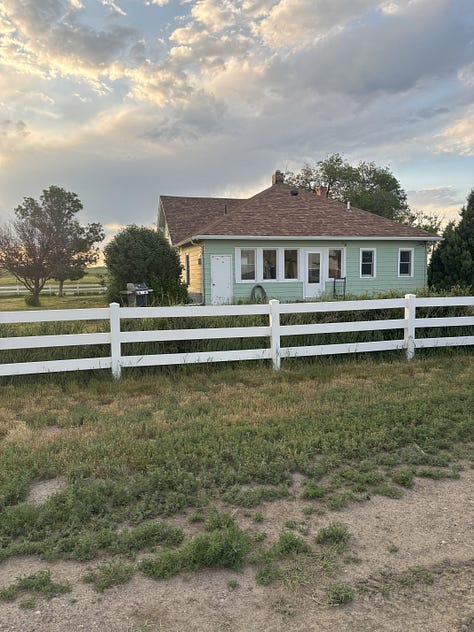
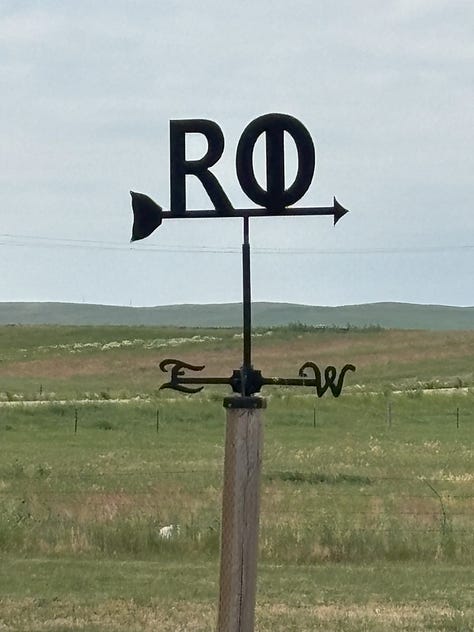
This past weekend, my sister Collette and I took my mother to the ranch for what will be her last visit. It was this ranch that my mother moved to when she was six, when her mother, who had been widowed for the second time four years earlier, married Frank Arbuckle, providing Mary Lee and her four children with a new home. A new family. Our family’s attachment to this place is impossible to quantify or explain. It has always been part of who we are.
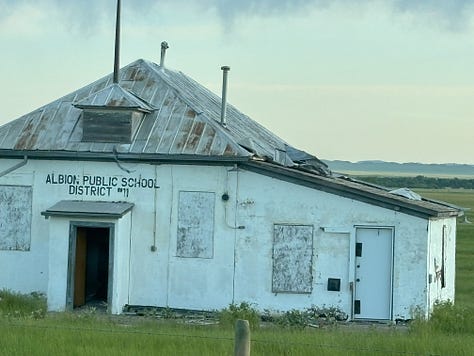
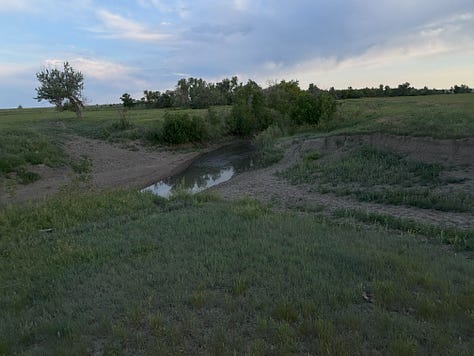
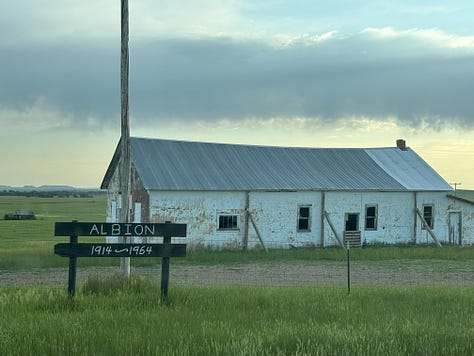
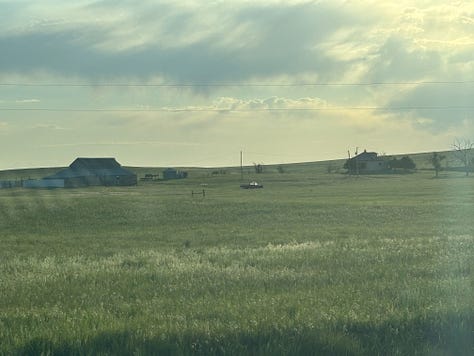
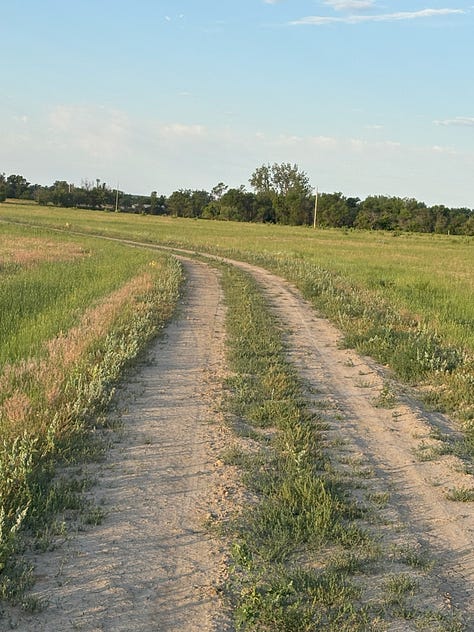

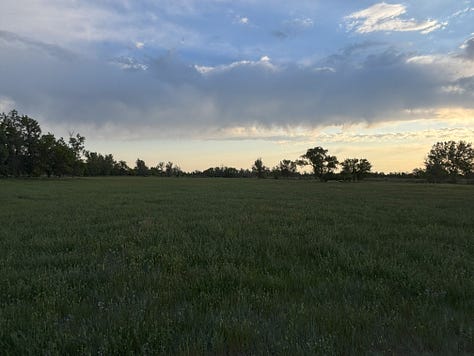
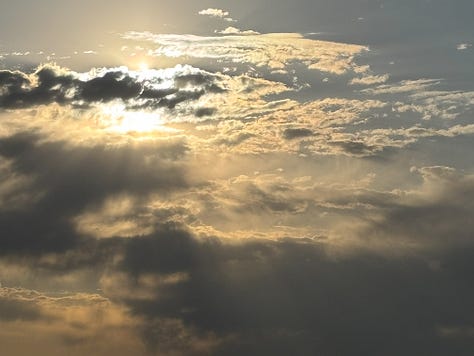

We visited the ranch every summer, and almost every Christmas, a remarkable thing when I think about it now, considering it was about 250 miles from where we lived, part of that drive consisting of a gravel road. I didn’t notice it as a kid, but I’m sure some of those drives were traumatic.

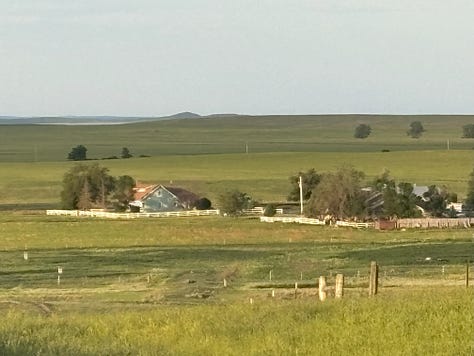
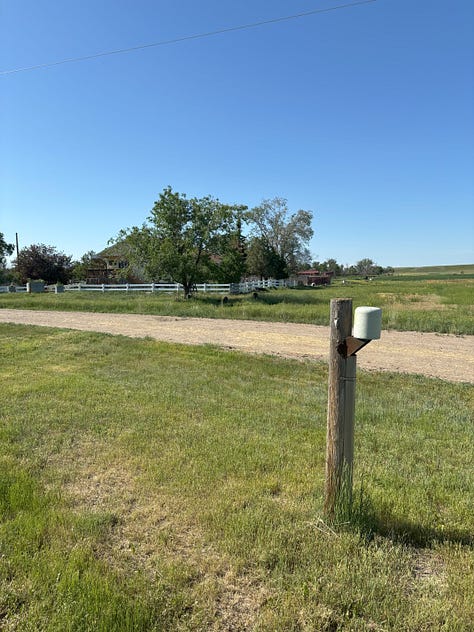
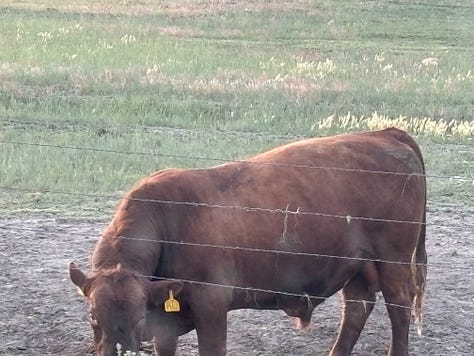
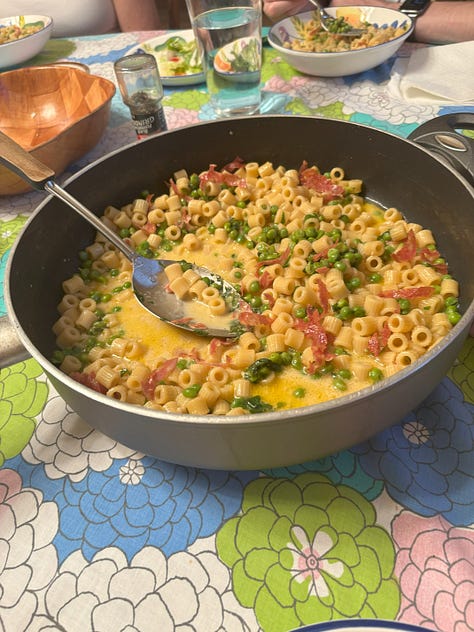
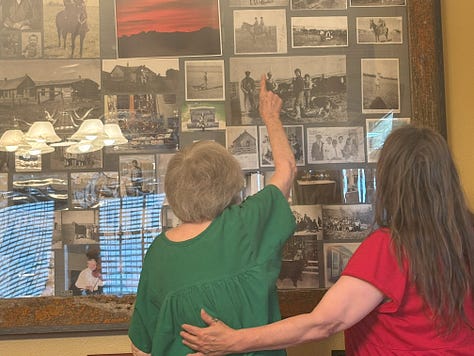
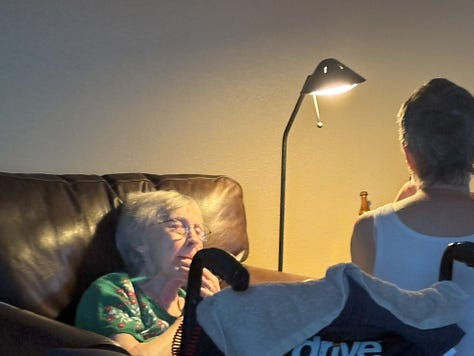
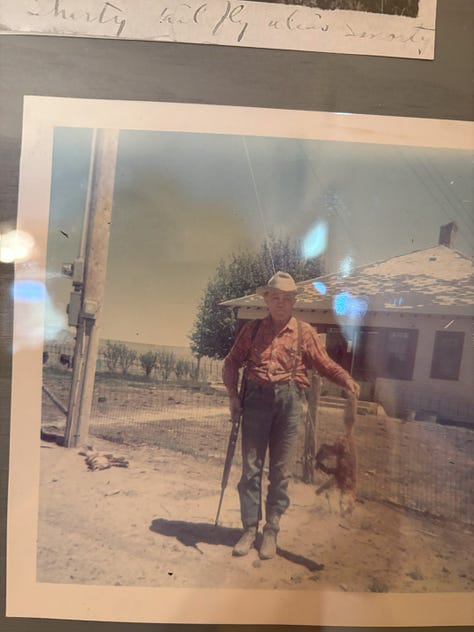
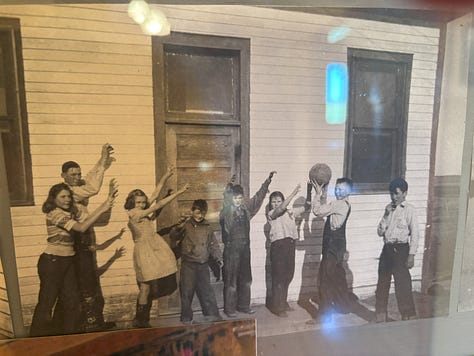
The day after we arrived at the ranch for this final visit, I woke up early and went for a drive, much like my grandpa did so many hundreds of times, and as I decided to veer off of one of the main roads into the field, it occurred to me that one of the most beautiful parts of living on a ranch, on land that you can call your own, is that you are free to create your own road whenever you feel the need. This happened often during the years my grandparents ran the place. Grandpa would start a new project in another corner of another pasture, and each time he drove to the new project, he would turn off one of the main roads in the same place, at first forming two new ruts, and eventually creating a whole new road.
It's an almost perfect metaphor for what it means to be a rancher, the need to be innovative, creative, blazing a new trail whenever the need arises. Contrary to some peoples’ opinion, farming and ranching is not a simple life. Everyone knows it’s not easy, but it’s also not simple. It requires constant diligence about new techniques, new breeds of cattle and grass and other crops and livestock. My grandfather and my uncle afterward were students of that life, and it was their willingness to leave an established road and try something new that made them successful as ranchers.
I worked on that ranch for a summer when I was a teenager, and it took me years to appreciate how much that summer impacted my entire attitude toward work, toward life, toward being willing to take risks. It formed me in ways that I am only now fully comprehending, and because of that, I will miss this place more than I can possibly express.


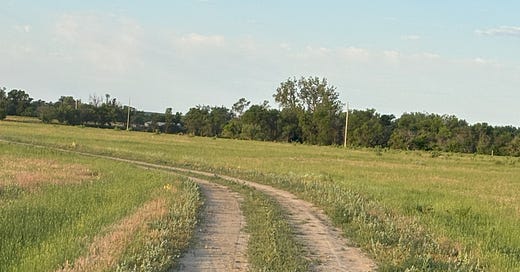



Bittersweet trip! I can just see your mom drinking in that place that holds so many memories for her. I'm glad she was able to make that long drive. No matter the future, it will always be a formative part of you!
Living out there a couple of winters (64 & 65 - equal-distant from Ekalaka, Alzada & Hammond if I remember right - was the Ridgway place) gave me huge respect for the ranching families. Initiative, hard work, ingenuity, fun loving community hall dances and more. One of those winters was brutal; hundreds of sheep and cattle died. (snow is easier to deal with than gumbo in the Spring.) About 15 years ago we were visiting one of the next generation ranchers, and he promptly put us in his pickup and headed to the fields., no roads. He wanted to show us the place. He had a story for every stop he made on the tour - "here's where I had to pull the calf out of the mud - he was in pretty tough shape so I took him back to the house to nurse back to health." That's just one of the stories he told; his pride in the place was palpable. Jack Owen, if you happened to know the family. His dad, Richie, had a plane to monitor the land and livestock. Wish we had had the video camera to record - it was quintessential. Thanks for the memory of the time, place, and culture. Suzy